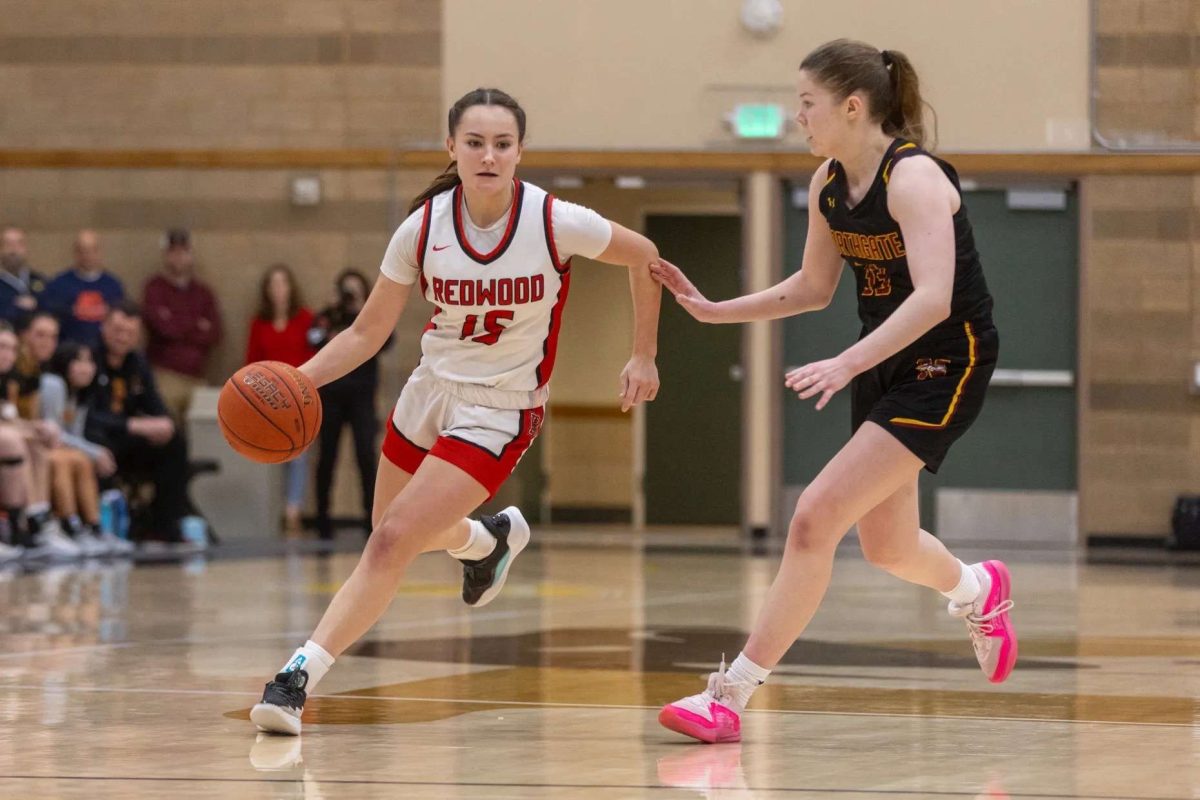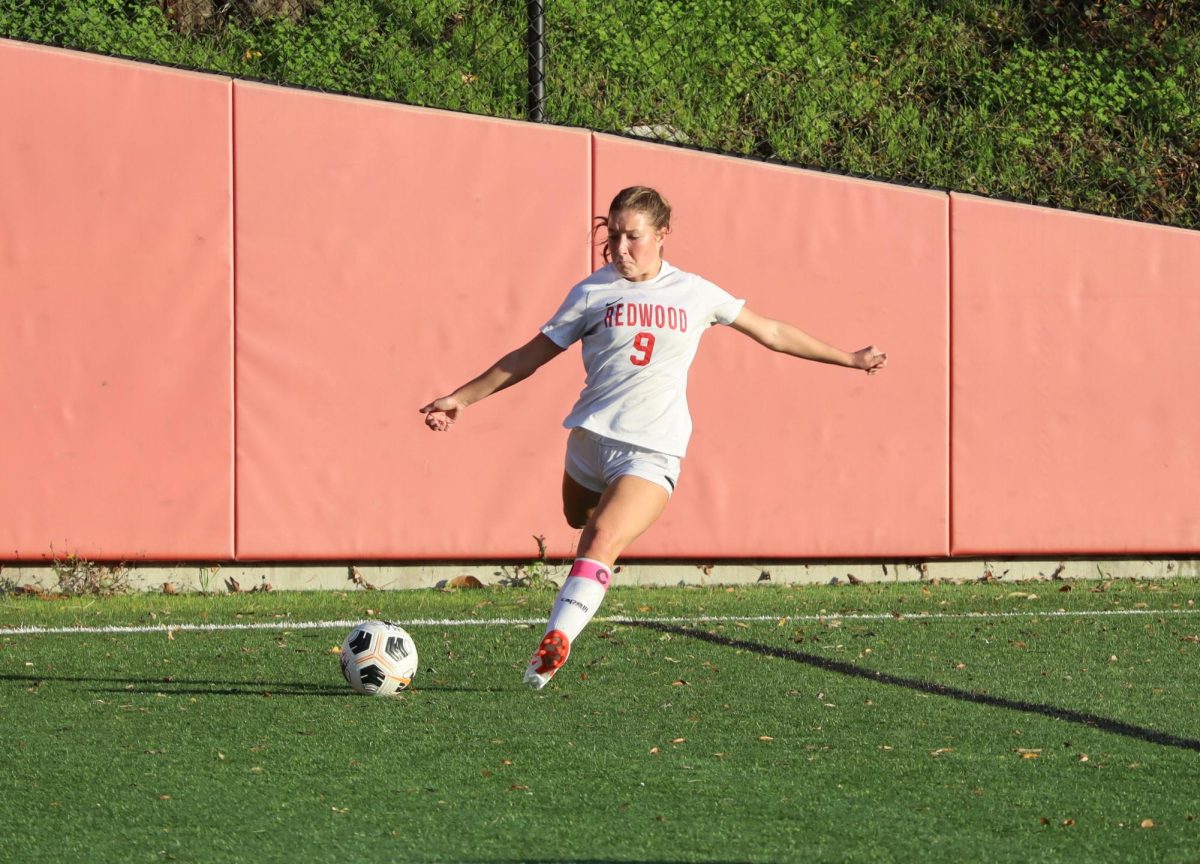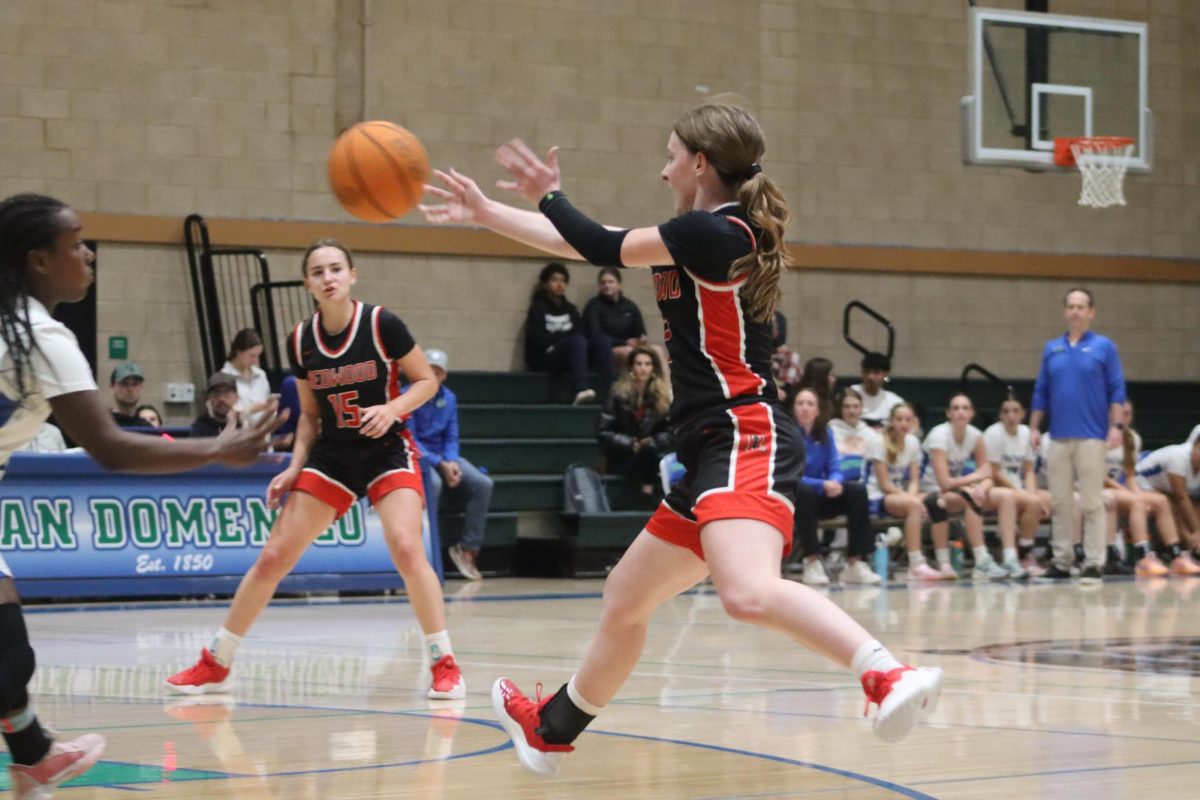
As I walk in the hallway with my giant Redwood Soccer parka, I look up to see Sabine, a freshman who performs well in my math class; I know she will be a reliable source of information for what I missed in the previous class due to a soccer game.
“I don’t know what you’re going to do,” she says, after recapping the confusion of yet another lesson I didn’t receive. I frantically look at TeamSnap, only to see that I have games on the next two block period days as well. Considering I don’t play a lot in these games, it not only jeopardizes my academics but also frustrates me. Schools should limit the amount of classes students miss due to rigorous sports schedules because it can result in added stress.
Having survived the varsity soccer schedule for 3 months, it has been a constant struggle to decide my priorities. Often, I have to wonder whether I am a student-athlete or an athlete-student. According to a March 2024 Bark survey, 46 percent of students experience increased stress as a result of playing a school sport, which supports that athletic schedules are amplifying teen stress.
In fact, the article “Too Busy for School? The Effect of Athletic Participation on Absenteeism” found that “Athletes are missing an average of 1.9 class periods per week or roughly the equivalent of one school day every 3.2 weeks.” Comparing students who don’t play sports to those who do, the study found that non-athletes are absent from class roughly 50 percent less than student-athletes. Additionally, 56.7 percent of students participate in a high school sport, which suggests that the majority of high school students are negatively affected by sport-related absenteeism. In response to complaints from both student-athletes and parents, the Marin County Athletic League (MCAL) has switched to a “round robin” form of athletics for the duration of the 2023-2024 school year for various sports. With each school team playing each other only once, instead of twice, the amount of time spent away from class is decreased, which emulates schedules used in previous seasons.
Furthermore, in 2019, California Governor Gavin Newsom mandated that schools start no earlier than 8:30 a.m., pushing school later into the day, which consequently, delays sports. However, these changes haven’t affected the number of games, but have instead resulted in more games outside of the county.
While some may argue that balancing academic and athletic schedules teaches students time management, there is a fine line between life skills and overwhelming stress. When signing up for a sport, students should not have to factor in such an immense impact on their other commitments. Truly, playing sports should be an outlet for stress, not a cause for it. Still, I often find myself thinking about the class I am missing during warmups, or planning my nighttime schedule down to the minute to ensure I have enough time to study for a test the next day.
Mother nature’s hand also doesn’t nudge the school towards a potential solution. Earlier sunsets in the winter also contribute to the problem. Having minimal natural light and no stadium lights makes scheduling games quite difficult. Academic counselor Jeff David has explored a possible solution of students taking fewer classes, which would get them home earlier and provide balance in their schedules.
“Culturally, as a school, we can encourage our students to be more mindful, and to be good to [themselves]; and if [they] are playing sports that are demanding, [they should] consider taking six classes,” David said.
This is hard as an underclassman, as most have a full class schedule with seven periods, but working within current district policies poses little room for alternative proposals. Not only do these demanding schedules hurt student-athletes, but numerous others in their lives as well.
With early games on weekdays, many working parents aren’t able to attend, and loads of class time is missed. Additionally, teachers must put in extra work to communicate with the students who may require individual help. Personally, each of my teachers have been accommodating, but decreasing the number of players with little playing time who are pulled out of class as well as moving games to weekends would improve sport-related stress levels beyond teachers’ control. Nonetheless, students shouldn’t have to choose between supporting their team or themselves. When the 2024-2025 athletic schedule is created, action should be taken to combat the stress resulting from student-athletes juggling many parts of their life.












